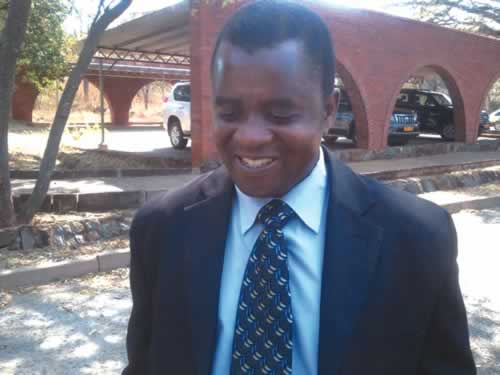The Sunday News

HWANGE Rural District Council is owed more than $2 million in unit tax which has accrued over the past six years as mining houses operating within its area of jurisdiction continue to default, an official has said.
The council’s chief executive officer, Mr Phindile Ncube, said failure by the mining companies to pay unit tax was affecting the local authority to effectively carry out its mandate of ensuring infrastructural development and undertaking projects to improve the livelihood of people in its communities.
“There have been some challenges in terms of interpreting the legislation to the extent that some companies feel they are not supposed to pay unit tax. We are owed in excess of $2 million which has accumulated since dollarisation,” Mr Ncube said.
Rural district councils are empowered by section 96 of the Rural District Councils Act chapter 29:13, in particular section 96 (a) (b) and (c) to charge unit tax on all owners of mining locations situated on rural land within the council area, mining for gold, silver, platinum or precious stones and employing more than five workers.
There are five companies extracting coal in Hwange, namely Hwange Colliery Company Limited, Makomo Resources, Coal Brick, Zambezi Gas, Chilota Colliery while others are at various stages of starting mining activities.
Mr Ncube said the local authority was continuously engaging the mining companies to honour their payments.
“We are engaging the companies, it’s a continuous process so that they can own up but most recently Coal Brick have started to make payments and we hope others will follow suit in spite of the challenges they are facing.
“The local authority uses the cash from unit taxes to spearhead infrastructure development in communities in the form of building clinics, schools and road rehabilitation. Even provision of clean water to the pro-poor in its communities,” he said.
Coal Producers and Processors Association (Copaz) president, Dr Charles Msipa, said his organisation was aware that coal mining companies had not been paying unit tax to the local authorities for some time.
He said non-payment of unit tax to the local authorities was reflective of the general financial challenges confronting Copaz members, which has seen some companies failing to pay wages and salaries for several months.
“Furthermore, there is confusion as to how unit tax which is based on mine output will be harmonised with the proposed Community Share Ownership Trust Fund (CSOTF) payments.
“We have requested HRDC to engage the Indigenisation and Economic Empowerment Board (IEEB) and other stakeholders over this matter so that we can map out effective strategies to achieve the noble objectives of the unit tax and CSOTF,” Dr Msipa said.
The CSOSTF is a Government initiative under the indigenisation programme aimed at ensuring that communities have shares in companies that exploit natural resources in their areas and use the proceeds from the shares to fund development projects in their respective areas.
The programme is already transforming lives across the country where it has been launched.
Dr Msipa said HRDC, IEEB and Copaz should in the interim defray unit tax and CSTOF payments through the identification, co-ordination and implementation of suitable projects under the rubric of the Public Private Partnership because coal mining companies may be in a better position to deploy road making and other civil contracting equipment than to effect cash payments.
“Communities would in the meantime reap significant benefit from the road works, dams and other civil works constructed by the equipment in this win-win arrangement,” Dr Msipa said.
Municipal Development specialist, Ms Thandiwe Mlobane, said the failure by mining companies to pay unit tax to local authorities was either “unwillingness or inability to pay”.
“The issue of unit tax is three faced because sometimes mines don’t pay as they feel it’s too high without them seeing the benefits and on the other hand the company will just not pay and lastly some companies feel that the local authorities aren’t providing the services they purport to thus there isn’t any need to give them money,” she said.



